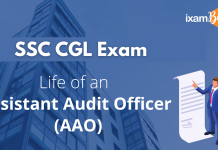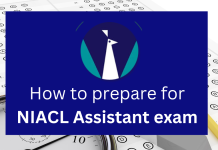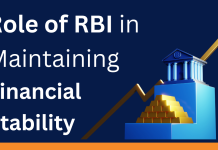NABARD Grade A Exams are a golden opportunity for the aspirants who are looking to work in Agriculture and Rural Development areas. In this article, we will discuss the NABARD Grade A Agriculture and Rural Development (ARD) section of the paper. However, this article will solely be focused on how candidates can prepare for the Rural Development part of the NABARD Grade A ARD syllabus. Our subject expert, Kailash Tiwari, ex-AFO, UBI, will take you through the NABARD Grade A syllabus to help you understand how you can prepare for questions about Rural Development. We will look at the syllabus for Rural Development, how to prepare for it and what are the resources available for the same.

How to study Rural Development?
Unlike Agriculture, there is no static syllabus for Rural Development. Questions revolve around Panchayat Raj development or about various schemes run by the Rural Development Ministries.
To begin with, first, you have to conceptualize a rural society/ village in your mind. When you do this, think about the following points with context to a rural setting.
Challenges faced in Indian villages
- Lack of roads/connectivity- Single-lane roads,
- Lack of housing facilities– In a rural setting, people have simple homes. Living in a pucca house is quite difficult as well.
- Lack of proper sanitation– No proper management of solid and/or liquid waste. Water waste is dumped in a common canal which leads to diseases.
- Maximum agriculture work (livelihood and employment)- More than 50% of Indian population lives in its villages. There is poor employment generation in the agricultural field. This is why the youth are migrating to cities for better opportunities. You will always be questioned about the Mahatma Gandhi National Rural Employment Guarantee Act (MGNREGA)
- Low rates of literacy– People in the villages live very difficult lives. Acquiring basic necessities is a challenge in itself. The focus of the entire family is shifted from education to acquiring basic needs and surviving day-to-day.
- Poor basic infrastructure– Primary infrastructure for the health and education sectors is very poor. The aims and objectives of the Community Development Program started in 1952 yet remain unfulfilled.
NABARD Grade A 2025: Rural Development Syllabus
Before we move forward with understanding how to prepare for the Rural Development syllabus, let us look at some broad topics that are evaluated in the examination. There are three main broad headings under which there are several subjects that are assessed. They are:
- Rural Area: Concept of Rural Area, Structure of the Indian Rural Economy, Importance and role of the rural sector in India- Economic, Social and Demographic Characteristics of the Indian rural economy, causes of Rural Backwardness
- Rural population in India: Occupational structure, Farmers, Agricultural Labourers, Artisans, Handicrafts, Traders, Forest dwellers/tribes and others in rural India- Trends of change in rural population and rural workforce; problems and conditions of rural labour; Issues and challenges in Handlooms
- Panchayati Raj Institutions: Functions and Working. MGNREGA, NRLM – Aajeevika, Rural Drinking water Programmes, Swachh Bharat, Rural Housing, PURA and other rural development programs.
Agriculture and Rural Development Schemes 2025
What should I focus on?
Now that we have conceptualized life in rural areas, we should understand what needs to be studied to understand and answer questions related to rural development in India.
- Rural connectivity initiative and program– What is the government doing to develop roadway connectivity in rural areas?
- Rural housing- Pradhan Mantri Gramin Awas Yojana (PMAY-G) previously Indira Awas Yojana, is a social welfare program, created by the Indian Government, to provide housing for the rural poor in India.
- SBM-ODF, ODF, ODF+- Swachh Bharat Mission: The Swachh Bharat Mission-Urban aims to fulfill the objective of 100% Open Defecation Free (ODF) status in all Urban Local Bodies (ULBs) in the country. This entails providing access to clean and usable toilet facilities for the citizens.
- Source of employment (skill development and MGNREGA)- Study the schemes undertaken by the Ministry of Skill Development. Understand the aims and objectives of MGNREGA
- Educational advancement (initiatives)- Study the schemes and programs undertaken by the government for educational advancement such as Midday Meal Scheme, Beti Bachao, Beti Padhao (BBBP) and Sarva Shiksha Abhiyan (SSA) among others.
- Health structure and programs- Study the schemes and programs undertaken by the government to strengthen the health infrastructure such as PM Jan Arogya Yojana, PM Jan Aushadhi Yojana and Health and Wellness Centers (HWCs).
Static Rural Development
How to study Static rural development? There are no prescribed books or guidelines per se. If you have a fair idea about the problems faced in the rural areas and the work done so far, you will be able to understand what kind of questions are asked from static rural development.
- The rural economy in India- Rural economy constitutes 46 percent of national income. Thus growth and development of the rural economy and population are key to the overall growth and inclusive development of the country.
- Rural population and workforce- What is the structure of the rural population? Where does the rural population seek livelihood and employment? These and many other similar questions can be expected.
- Panchayati Raj Institutions– How did the system of Panchayati Raj evolve? We will study the various committees set up over the years to formulate the Panchayati Raj system later in this article. Questions on Panchayati Raj are surely assessed in every examination.
- About NABARD– What is NABARD? What are its functions, aims and objectives? If you are preparing for the NABARD Grade A exam, it is understood that you need to know about the work done by the institution.
- Institutional and non-institutional agencies- What are the agencies that work in the rural areas for their development? Agencies such as banks, cooperative societies, registered societies and NGOs fall under this category.
- Rural credit– Any loan that is taken for agricultural purposes or small home businesses across the rural areas in India is known as a rural credit. Also know about Kisan Credit Card (KCC) and Nationalization of Banks 1969.
Sources to study Rural Development
- Static part- Related Ministries and the reports they publish.
- Kurukshetra Magazine is a monthly magazine published by the Government of India. It helps us understand the government’s views on an issue and the steps taken to work toward it. Reading the Kurukshetra magazine will not only help you prepare for ARD but also the Economic and Social Issues (ESI) part of the syllabus. If you are unable to read the entire magazine, you can always find ixamBee YouTube videos giving you the summary of the monthly publication.
- Read the Yojana magazine as well.
- Dynamic current affairs- Current affairs topics related to agriculture and rural development. Ministry of Rural Development, Ministry of Micro, Small & Medium Enterprises published by the Press Information Bureau (PIB)
- Economic survey-Agriculture and Rural Development for the year 2023-24.
Panchayati Raj
Through the decades, several committees have been formed that have helped the evolution of the Panchayati Raj System in India. All the efforts culminated in the adoption of the 73rd Amendment Act, 1992.
73rd Constitutional Amendment Act of 1992
The Constitution (73rd Amendment) Act, 1992 added a new part IX that consisted of 16 Articles to the Eleventh Schedule of the Constitution. The 73rd Amendment foresaw the Gram Sabha as the basis of the Panchayat Raj System that would carry out duties and delegate power as it derived from the State Legislatures.
NABARD Grade A 2025: Preparation Strategy / Exam Preparation / Preparation Plan
If you’re aspiring to crack the NABARD Grade A: Agriculture and Rural Development Exam, ixamBee is your ultimate preparation partner! Our NABARD Grade A: Agriculture Online Course offers expertly curated study material, live classes, and comprehensive guidance to help you excel. Practice with ixamBee’s NABARD Grade A Prelims Previous Year Papers (PYP) to understand the exam pattern and question trends, and refine your preparation further with our NABARD Grade A Mock Tests, designed to simulate the real exam environment. Additionally, stay ahead of the competition with ixamBee’s support for other upcoming government exams like NABARD Grade B, SEBI Grade A, and RBI Grade B. Join ixamBee today and take a confident step toward success!
Also read
Target NABARD Grade A 2024: A New Year Resolution
5 Biggest Ongoing Exams of Jan 2024 for Graduates
Last-Minute Exam Preparation: How Do I Study in the Last Week of an Exam?
At ixamBEE you can find free Online Test Series, GK updates in form of Beepedia, as well as latest updates for Bank PO, Bank Clerk, SSC, RBI, NABARD and Other Government Jobs.














